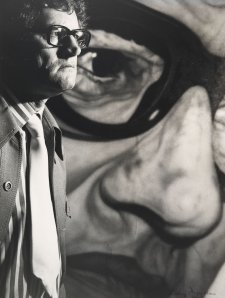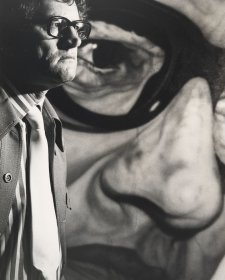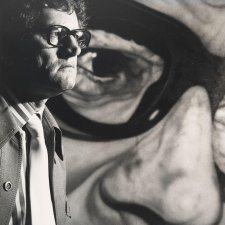Tim Burstall (1927-2004) set up Eltham Films in the early 1950s, when the local film industry was moribund. A Geelong Grammar boy, Tim had found his way to the Boyd family pottery with his girlfriend, Betty Rogers, in 1945. The teenagers became friends with Yvonne and Arthur Boyd; Yvonne and Betty joined the East Malvern branch of the Communist Party in 1945, and Yvonne and Tim Burstall were lovers for a time. The Burstalls and the Percevals settled in Eltham in the late 1940s. Having established Eltham films with Patrick Ryan, Burstall won an award at the 1960 Venice Film Festival for his short children’s film The Prize. That year, Eltham’s Black Man and His Bride: Australian Paintings by Arthur Boyd Australia won the AFI Award Silver Medallion in the Experimental category. Other early ventures of the company include the television series Sebastian the Fox (1961-1963), which won an AFI Special Award; a film about the ceramic sculptures of John Perceval (1961); and Ned Kelly: Australian paintings by Nolan (1962) which won an Australian Academy of Television and Cinema Arts award. These were followed by Antipodean painters (1963), Australia Felix: Australian paintings by Tom Roberts (1963), Sydney Blues: Paintings by Robert Dickerson (1963),The Crucifixion: Bas reliefs in silver by Matcham Skipper and a documentary, The Making of a Gallery (1965) about the National Gallery of Victoria. In 1967, Betty Burstall founded La Mama, a ‘playwright’s theatre’ in an old building in Carlton, Melbourne. Local actors, writers, directors, poets and musicians used the space for innovative, small-scale productions in which the audience practically sat on the stage. Tim Burstall’s first feature film, the arthouse venture 2000 Weeks (1969) was a flop, from which he never recovered. He raised the money for his next film, Stork (1971), by selling several of his Arthur Boyd paintings; the investment paid off, for Stork was Australia’s first commercially successful feature since 1955. Its successor, Alvin Purple (1973) was a huge local success and the first Australian feature released worldwide by a big US distributor. After Petersen and Eliza Fraser he embarked on The Last of the Knucklemen (1979), set in Andamooka, an isolated opal mining town which had a population of barely 300 by the time the film was made. The world premiere of the film, which starred Gerard Kennedy, Steve Bisley and Michael Caton (in his screen debut) took place at the Andamooka Community Hall. Burstall suffered a fatal stroke at a screening of his films in Eltham in 2004. His diaries, dwelling affectionately on his sexual efforts, were published as Memoirs of a Young Bastard in 2012.
- About us
- Support the Gallery
- Venue hire
- Publications
- Research library
- Organisation chart
- Employment
- Contact us
- Make a booking
- Onsite programs
- Online programs
- School visit information
- Learning resources
- Little Darlings
- Professional learning







